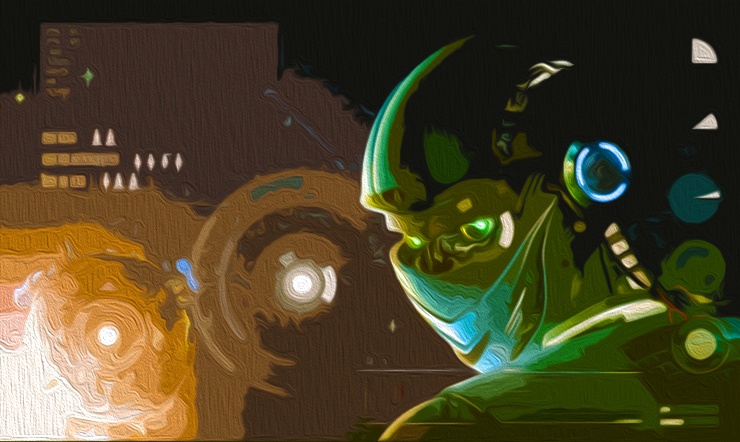Elon Musk’s Twitter acquisition is doomed without a huge, world-changing vision that can distract from his erratic management and sophomoric product ideas.
Elon Musk, a jerk at SpaceX and Tesla, had a great vision. He’s just a jerk at Twitter.
Elon Musk has a tried-and-true strategy for doing business. He’s used it for years to create companies such as Tesla and SpaceX. It isn’t a business model that will make Twitter profitable. It is one that will endanger the social media company.
Here’s what Musk says: Be the first to enter a field where there is very little competition. Your new company can solve a huge, global problem or reach an impossible goal. You can raise money from a passionate group of believers and keep them on the rope with half-baked product concepts. You can make billions of dollars from the government. Overwork, undervalue and underpay your employees. Repeat.
Twitter is the antithesis to an “Elon Musk business.” It is an important but minor player in a market dominated by well-funded, large companies. Twitter is more likely to be shut down by the government than it is to receive a lucrative contract. Twitter employees have choices: They can choose to leave the company and find work elsewhere that treats them better than Musk.
Perhaps most important, many people believe that Twitter and Musk’s ownership are part of a larger media problem than a solution. Musk’s Twitter acquisition is doomed without a huge, world-changing deal to cover up his erratic management and sophomoric product ideas.
Elon is trying the same playbook
Musk’s Twitter takeover caused a lot of stunned pearl-clutching. But if you have been paying any attention to Musk’s businesses over the past decade, it’s not surprising that he has taken a brutal, slash-and burn approach.
Consider his cruel treatment of Twitter employees. Stories coming out of the company’s San Francisco headquarters include stories about thousands of employees being fired days before Thanksgiving, working schedules that force the remaining employees to sleep at the office, fear and mistrust, and the firing of hundreds of workers. It is troubling that Musk does not respect his employees, but he has been a miserable boss in all his ventures. SpaceX and Tesla are well-known for their difficult work environments. SpaceX paid $4 million to employees in 2016, as part of a settlement with workers who sued the company over failing to offer adequate wages and work breaks. The company has intimidated workers at Tesla factories for trying to unionize. Workers at the California plant claimed that they were paid less than their unionized counterparts in 2017. Tesla has been criticized for safety violations in its factories for many years. It has also been sued for the treatment of its Texas construction workers. Musk has refused to address the issue of racism. In 2021, a judge ruled that Tesla must pay $137 million for a Black man who was subject to racist taunts as an elevator operator at Fremont’s California factory.
Musk boasts that his companies can achieve the ambitious goals he has set for them, but this chaotic management is a stark contrast to their current state of affairs. Right now, Musk is making big promises about what the future of Twitter will look like to entice people to the platform: amazing video tools, 4,000-character-count tweets, a suite of premium features, an end to annoying bots. These kind of product teases are a standard part of any Musk-led Tesla presentation. Musk promised that Tesla would have “over one million robo-taxis on road” by 2019, in 2019. Tesla currently has no such robo-taxis. The faithful still wait for their Cybertrucks, more than two years after placing initial orders. Even the products that do come to fruition, such as Tesla’s Model 3, arrive many years later than expected. As the Model 3 was being constructed, I heard employees complain about how Tesla’s inept planning and testing resulted in sloppy work and defects later on.
Musk used a fake product launch in 2016 to convince Tesla shareholders that he would buy SolarCity, a solar-energy firm that was at the time led by Musk’s cousin. Musk, SpaceX, his brother and SpaceX were heavily invested into SolarCity, and were ready to go bankrupt when the once-fast-growing company went under. Emails revealed that Musk launched a flashy solar-roof tile product, which didn’t exist. This was to mislead Tesla shareholders about SolarCity’s prospects and convince them to buy the company. Musk and Tesla shareholders have had a difficult time with SolarCity.
Musk’s product-pushing and employee-punishment plays worked at previous jobs. His customers were happy with the products he offered and he was able keep enough workers around to build the cars, mount the solar panels and launch his rockets into orbit. He was the world’s wealthiest man until recently. This same behavior is costing him with Twitter. Musk’s strategies are being turned against him by the key differences between his social media companies.
All ye faithful!
Every Musk company has a huge, world-changing promise at its core. They sell the idea that their products or services are solving a difficult problem for humanity, be it traffic or climate change. Musk’s promises are more closely tied to religion, as he was sent to our planet to cleanse us of our waste and pollution. If you think about it, the idea that a luxury sportscar can stop global warming and that the solution to Earth’s pollution is to send everyone to Mars is absurd. But that’s not the point. All this mythmaking has the goal of making investors, employees and customers evangelists.
Musk does this by making employees feel like they are saving the planet. Twitter is a good example of how this will not work. Its employees joined a company that had values quite different from Musk’s “free speech absolutism.” They are used to a pre”hardcore” culture where they could have personal days. Instead of being forced to sit through late-night meetings and submit to the will of the CEO, they can choose to be productive. They have many options if they wish to remain in the industry. The wider employment market is still strong and, as Aki Ito, my colleague, reported, many former tech workers are finding new jobs with higher salaries than they had previously. This grueling pace led to high turnover even at Tesla, where Musk is the most passionate about mythmaking. It was especially hard for employees who have to deal with Musk frequently. According to a former employee, the culture shift at Tesla when Musk became CEO was similar to when Voldemort’s Death Eaters seized the Hogwarts halls. Don’t be surprised if Twitter employees leave.
Musk believes that having a purpose is crucial because it attracts money. This allows Musk to attract governments who are willing to help solve their most difficult problems. Musk’s companies rely on government subsidies, despite his criticisms of them. In 2015, a Los Angeles Times review revealed that Musk had received over $4 billion in government funding. And since then, Tesla has received billions in government-created regulatory credits from combustion-engine-car companies, over $1 billion in tax breaks and grants to build out more factories in Nevada and New York, billions in contracts for SpaceX, and even payroll benefits from the pandemic stimulus bill. Even his most ambitious ideas have been able to snag government cash. A Wall Street Journal investigation found that Musk’s tunnel-based solution for urban traffic, The Boring Company has tried to get government subsidies across the country and in Canada, despite only having built one tunnel in Las Vegas.
Tesla’s stock has become a star because of its ability to sell the dream. To be part of Musk’s mission, people bought Tesla. It didn’t matter that Tesla was only profitable last year or that its vehicles were not reliable or that other established automakers were in the process of catching up with it technology. Every journalist and investor who asked Musk about his mission or for any information on it was subjected to bullying, harassment, and threats. Based on Musk’s promise to change the future, Tesla was the most valuable car manufacturer in the world, according to the faithful, the evangelists. Although I may be cynical, I don’t think that Twitter will ever become the next big thing. Musk might claim that he bought the company for free speech, but, unlike his other ventures and businesses, he doesn’t have enough people — whether they are his customers, employees, or users — who believe.
There is no time to waste
Musk is often the first or only company to enter a market. For most of its existence, Tesla has been the best option for high-end electric vehicles. SpaceX is the only company that can deliver payloads to orbit. SpaceX is able to experiment with new technologies and sometimes succeed in this field because it has no competitors. Musk attempted to build an auto factory with no human workers. He ended up spending billions of dollars to destroy useless robots that didn’t work, just like the industry experts said it would. Tesla had to establish a human-run manufacturing plant in a tent outside of its California factory to make up the time and space lost.
These Twitter monkeyshines will not be as busy. It isn’t at the top of social media’s pecking order, and I don’t think it is necessary to say so. This company, which receives over 90% of its revenue through advertising, has been squeezed and beaten by Google and Facebook as well as newer platforms like TikTok. Advertisers don’t have to use Twitter if they want people to see their ads. While revenue is declining, Twitter still needs to take out $1.3 billion each year for its leveraged buyout. Twitter has never earned $1.3 billion per year and Musk has never managed a company in such a situation. He has always had money and time to spare. Even with all these advantages, Tesla almost went bankrupt in 2018.
The economic downturns that have hit Musk’s house have never been experienced by the Musk household. SpaceX and Tesla both experienced decade-long economic boom cycles that saw interest rates at zero. This allowed them to build the foundations they have today. The economy is slowing down and debt is becoming more costly to manage. Money is also becoming scarcer. Musk will have to sell his most liquid assets, Tesla shares, in order to pay Twitter’s bills. The stock fell by half this year, and there are less chances of growth tech stocks next year due to the Fed’s continued increase in interest rates. China is a major market for Tesla and demand is declining. Musk’s social media antics are causing damage to the company’s brand. Any competent CEO must have a plan to deal with these headwinds. Musk doesn’t have a plan according to his quarterly calls with investors, where he was supposed to discuss plans to make more.
Musk does not suddenly become serious or start acting like any other executive at pivot. The frenzied, callous, throwing-ideas-at-the-wall boss from hell you see on Twitter is the one people actually get in Musk world. It has been this way since the beginning. It worked because it was during a bullish period in tech, a decade that saw the world at its peak and he was the king, that this style worked. It won’t.
Linette Lopez is an Insider senior correspondent.
Business Insider has the original article.
—————————————————————————————————————————————
By: llopez@businessinsider.com (Linette Lopez)
Title: At Tesla and SpaceX, Elon Musk was a jerk with a grand vision. At Twitter, he’s just a jerk.
Sourced From: www.businessinsider.com/elon-musk-business-playbook-boss-visionary-jerk-spacex-tesla-twitter-2022-12
Published Date: Sun, 18 Dec 2022 11:37:00 +0000





Leave a Reply